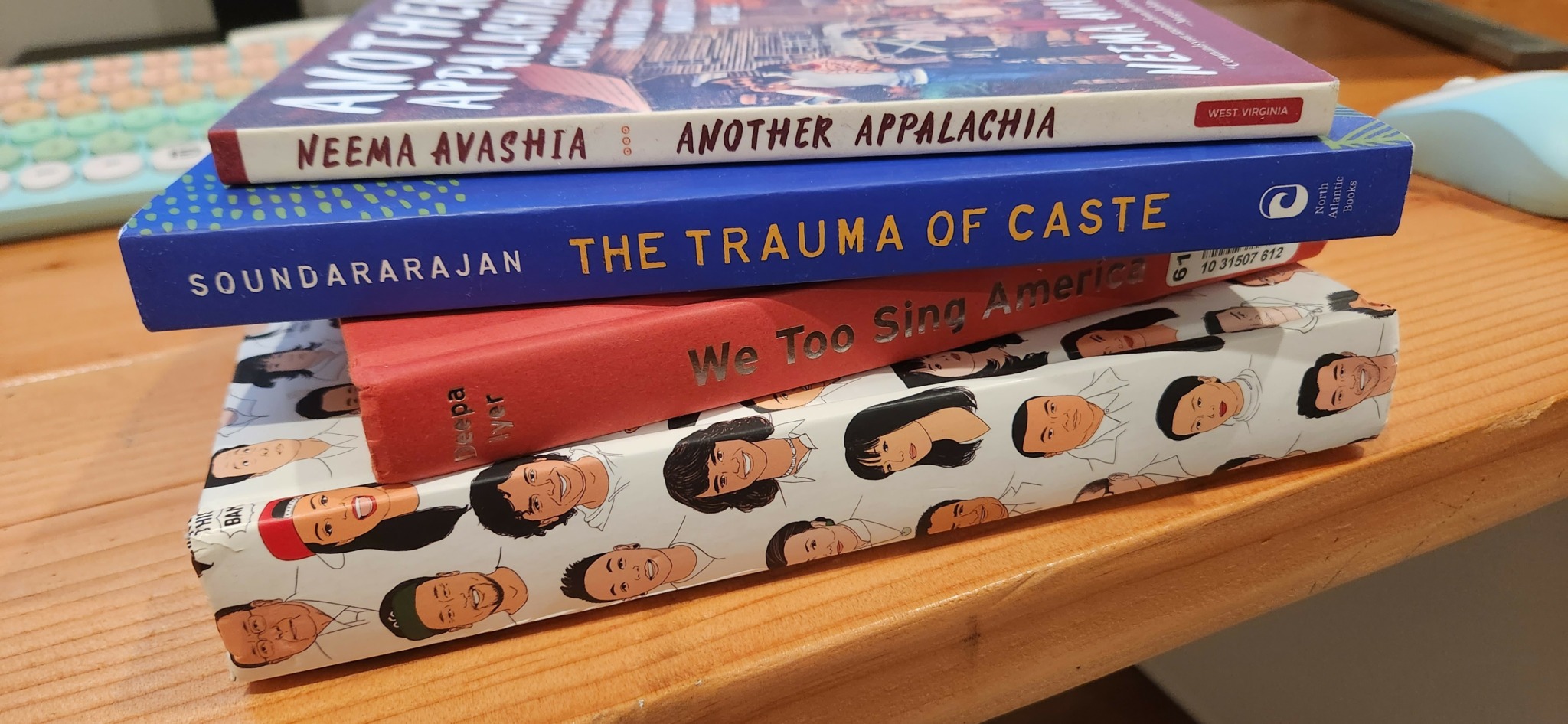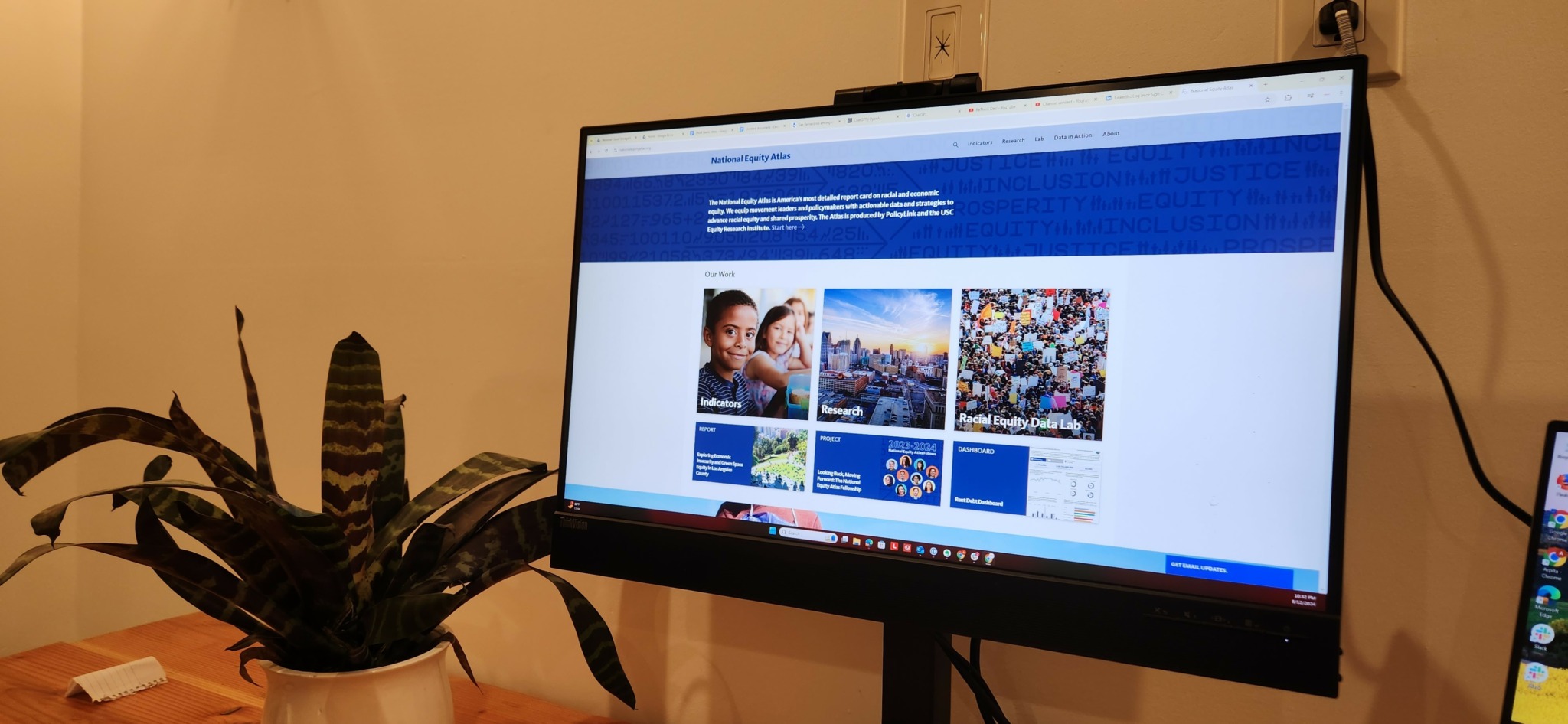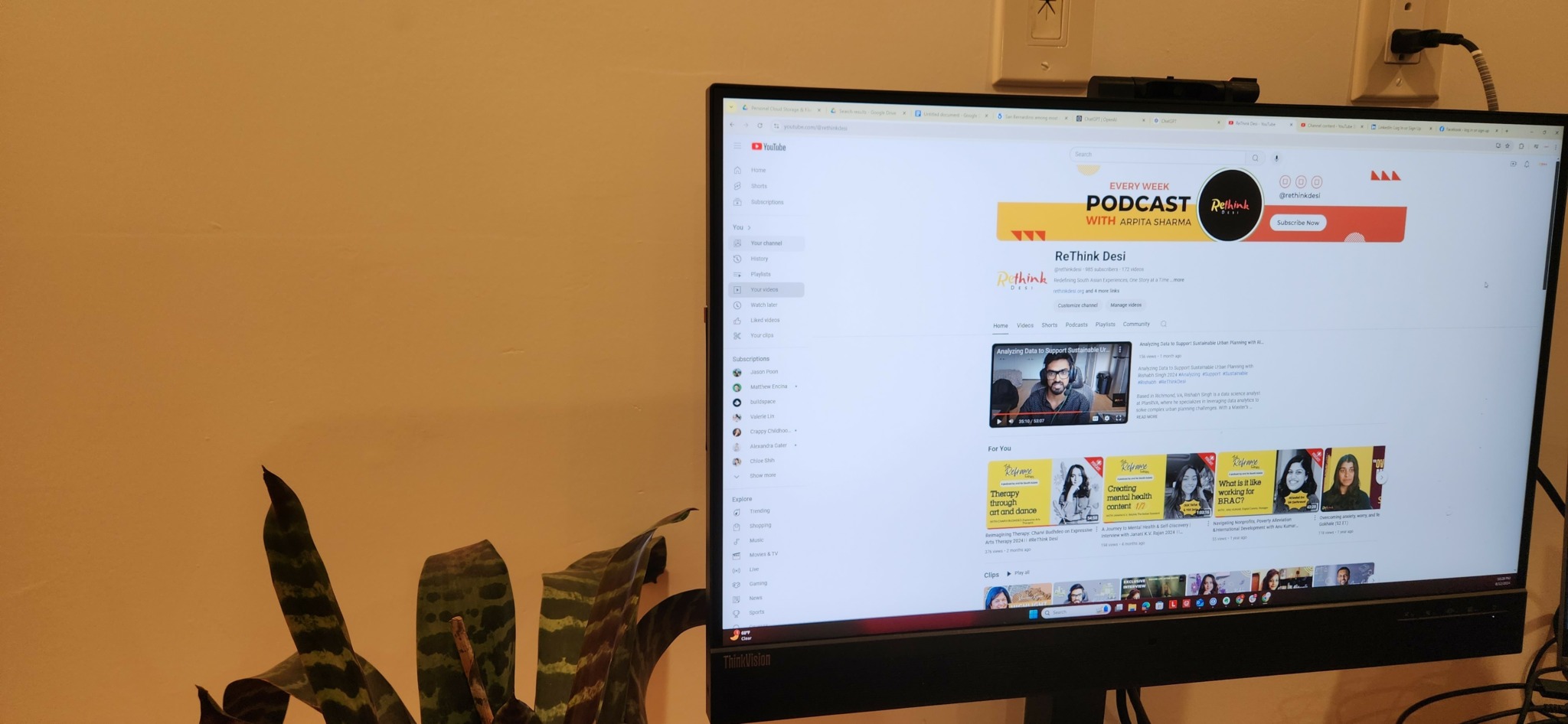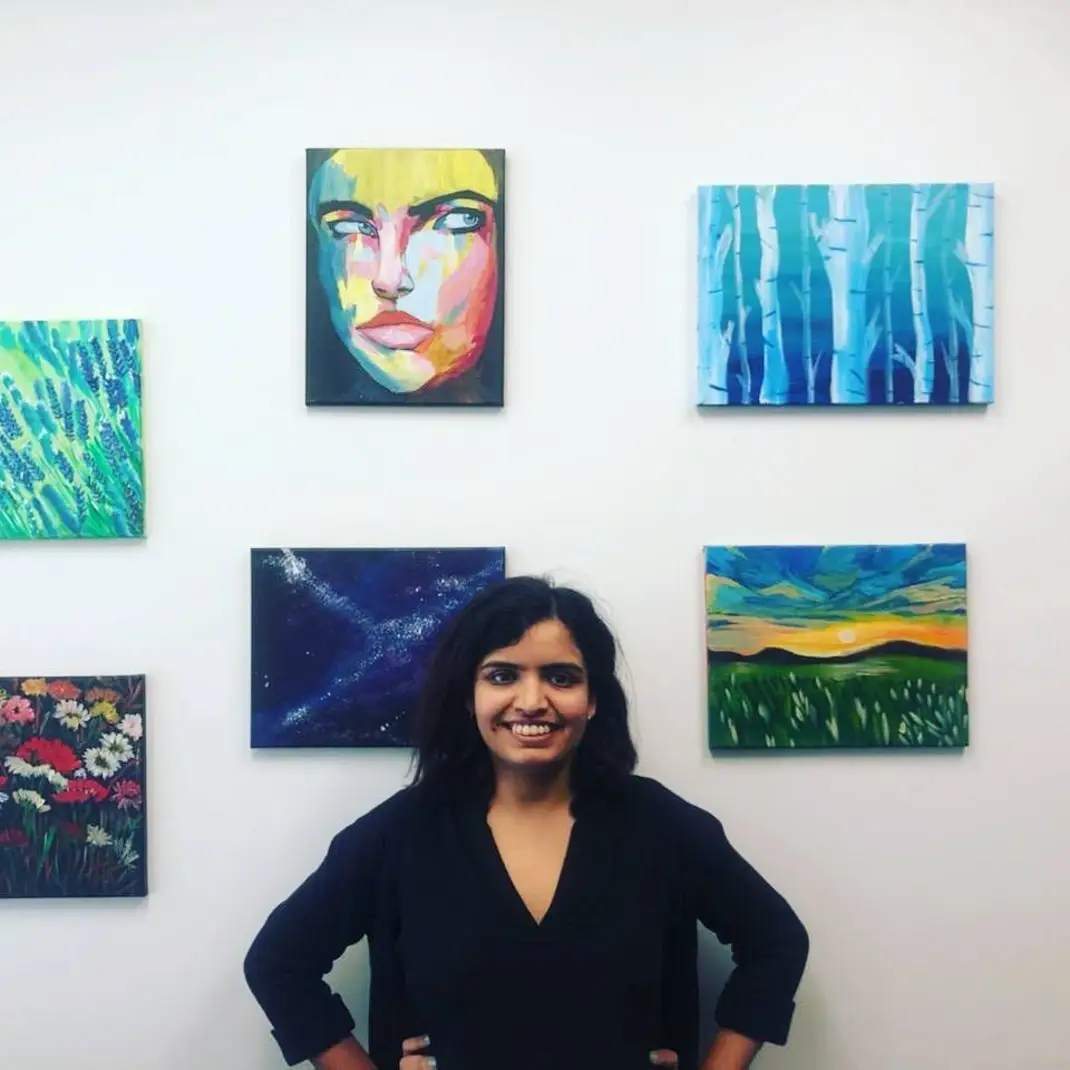We caught up with the brilliant and insightful Arpita Sharma a few weeks ago and have shared our conversation below.
Arpita , thanks for taking the time to share your stories with us today We’d love to hear about a project that you’ve worked on that’s meant a lot to you.
One of the most meaningful projects I’ve worked on has undoubtedly been Rethink Desi, a platform I created to explore and discuss the often overlooked issues within the South Asian diaspora. What began as a personal outlet for deep reflection has grown into something much larger—a space for storytelling, education, and community-building around the unique intersections of identity, culture, and lived experiences.
The idea for Rethink Desi was born from my own struggles of feeling disconnected from mainstream narratives that represented South Asians. Growing up, I often noticed how much of our community’s challenges—whether related to immigration, mental health, or cultural expectations—were either stereotyped or completely ignored in public discourse. As someone who values thoughtful, critical conversation, I felt compelled to create a platform that could tackle these topics head-on.
The most meaningful aspect of this project is how it connects people through stories. One of my goals was to create an accessible space for others to share their lived experiences and give voice to perspectives that don’t often reach the forefront. I’ve been able to feature stories ranging from discussions about immigration policies to the stigma around discussing disabilities, to topics such as urban planning and how it intersects with South Asian communities. What makes this project especially meaningful is the feedback I receive from people who feel seen and heard, perhaps for the first time. Many have shared that my content sparks conversations in their own families or communities that they never thought possible.
A turning point in the growth of Rethink Desi has been the introduction of short reels. With attention spans shrinking, I realized the power of quick, engaging content to communicate complex ideas. The reels have allowed me to capture key moments from South Asian history, the evolution of the AAPI identity, and even personal reflections on topics like the 1947 Partition or the journey of South Asians in the U.S. Census. These short reels have not only made my content more accessible but have also sparked meaningful dialogue among viewers. I regularly receive comments from people sharing how a 60-second clip opened their eyes to something they hadn’t considered before.
This past month marked another exciting development in Rethink Desi’s journey: I began working with a dedicated editing team to help polish and perfect the content I’ve been producing for over three years. While I’ve managed content creation on my own for the majority of the project, this collaboration has been transformative. Having a team has allowed me to fine-tune my creative process and elevate the visual storytelling aspect of my work, which I believe will not only enhance the viewer experience but also take Rethink Desi to the next level.
What’s most exciting is that through these learnings, I’m now positioning myself to help other individuals and organizations share their message with the world. Many organizations have powerful stories and missions but lack the resources or expertise to engage broader audiences through digital content. I hope to leverage my experience and offer content creation services that empower these nonprofits to connect more meaningfully with the communities they serve. This next phase of my journey is not just about growing Rethink Desi—it’s about expanding its impact by helping others amplify their voices.
The project has come with its challenges. As the sole creator managing the content, editing, and promotion of Rethink Desi for years, there have been moments where I felt overwhelmed. But working with a team has helped me embrace new perspectives, and I’ve learned to focus on what matters most: creating a safe space for honest dialogue.
Looking back, Rethink Desi has been more than a platform for education or content creation—it’s a reflection of my journey toward embracing the complexities of my identity. It’s taught me the importance of being patient with growth and of finding fulfillment not in numbers or views, but in the meaningful conversations and connections I’ve been able to facilitate.
Ultimately, this project has allowed me to make a difference by reshaping the way people think about their heritage, their identities, and their place in the world. For that, Rethink Desi will always be the most meaningful project I’ve had the privilege to work on—and I’m excited to see how it evolves in the future.
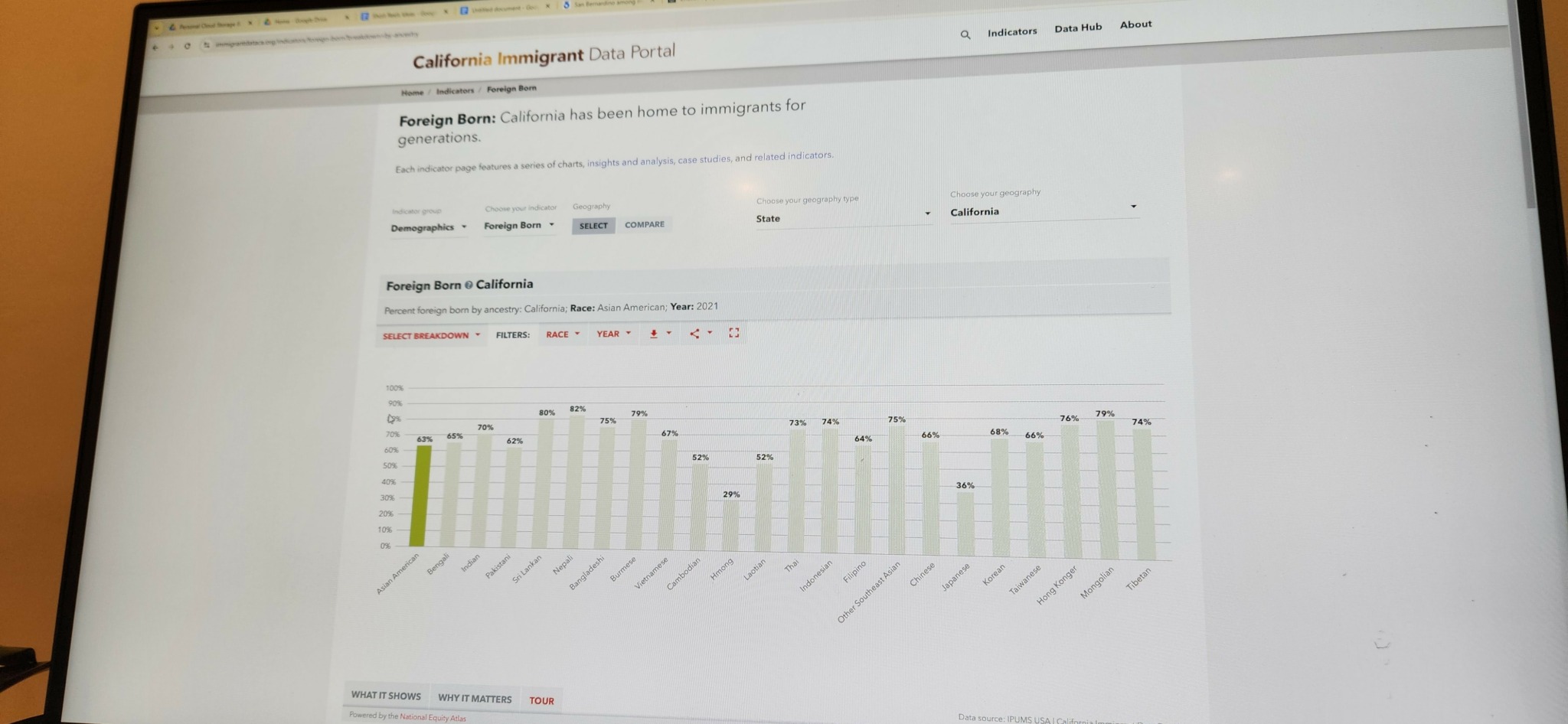
As always, we appreciate you sharing your insights and we’ve got a few more questions for you, but before we get to all of that can you take a minute to introduce yourself and give our readers some of your back background and context?
I’ve always been passionate about understanding the complexities of society—what drives inequity, how communities are shaped, and the role of policy in addressing these challenges. My journey started with an undergraduate degree in International Development, where I delved into the social, economic, and political forces that shape global progress. This laid the foundation for my career and academic pursuits, leading me to earn two master’s degrees—one in Public Policy and the other in Urban Planning. These disciplines taught me the value of data-driven solutions and policy-making in addressing systemic issues at both the local and global levels.
Currently, I work as a Senior Data Analyst, a role that allows me to blend my passion for research and analytics with real-world problem-solving. As a data analyst, my primary focus is to provide insights that help organizations and policymakers make informed decisions. From understanding patterns in community development to evaluating the impact of policy changes, I use data to tell stories and create meaningful change. One of the key problems I help solve is translating complex datasets into actionable strategies that can drive equitable growth and development in cities, organizations, and communities.
What sets me apart is my interdisciplinary background. Having worked at the intersection of public policy, urban planning, and data analysis, I bring a unique perspective to my work. I don’t just crunch numbers—I understand the broader context, whether it’s urban infrastructure challenges, social equity issues, or the intricacies of community engagement. This holistic view allows me to provide my clients and stakeholders with solutions that are not only data-driven but also culturally and contextually informed.
In addition to my professional work, I am the creator of Rethink Desi, a platform dedicated to exploring issues within the South Asian diaspora. Through Rethink Desi, I produce content that tackles topics like immigration, urban planning, disability rights, and cultural identity. My platform has evolved from long-form discussions to creating short reels that capture these complex issues in engaging, bite-sized content. I’ve recently started collaborating with a team of editors to enhance the production value of my content, and I’m excited about the potential to offer content creation services to nonprofits looking to share their message more effectively.
The thing I’m most proud of is how my work—whether through Rethink Desi or as a Senior Data Analyst—has always been focused on creating impact. I’ve been able to help organizations and communities take informed steps toward equity, and I’ve also been able to give voice to underrepresented perspectives. I believe in the power of storytelling through data and content, and I strive to build connections and foster understanding through everything I do.
For potential clients, followers, or collaborators, I want you to know that I’m dedicated to crafting solutions and narratives that matter. Whether I’m analyzing data to shape policy or creating content that sparks dialogue on social issues, my focus is on making an impact that lasts. I hope to not only grow Rethink Desi into a platform that continues to challenge and inspire but also to extend my expertise in content creation to help other organizations amplify their voices.
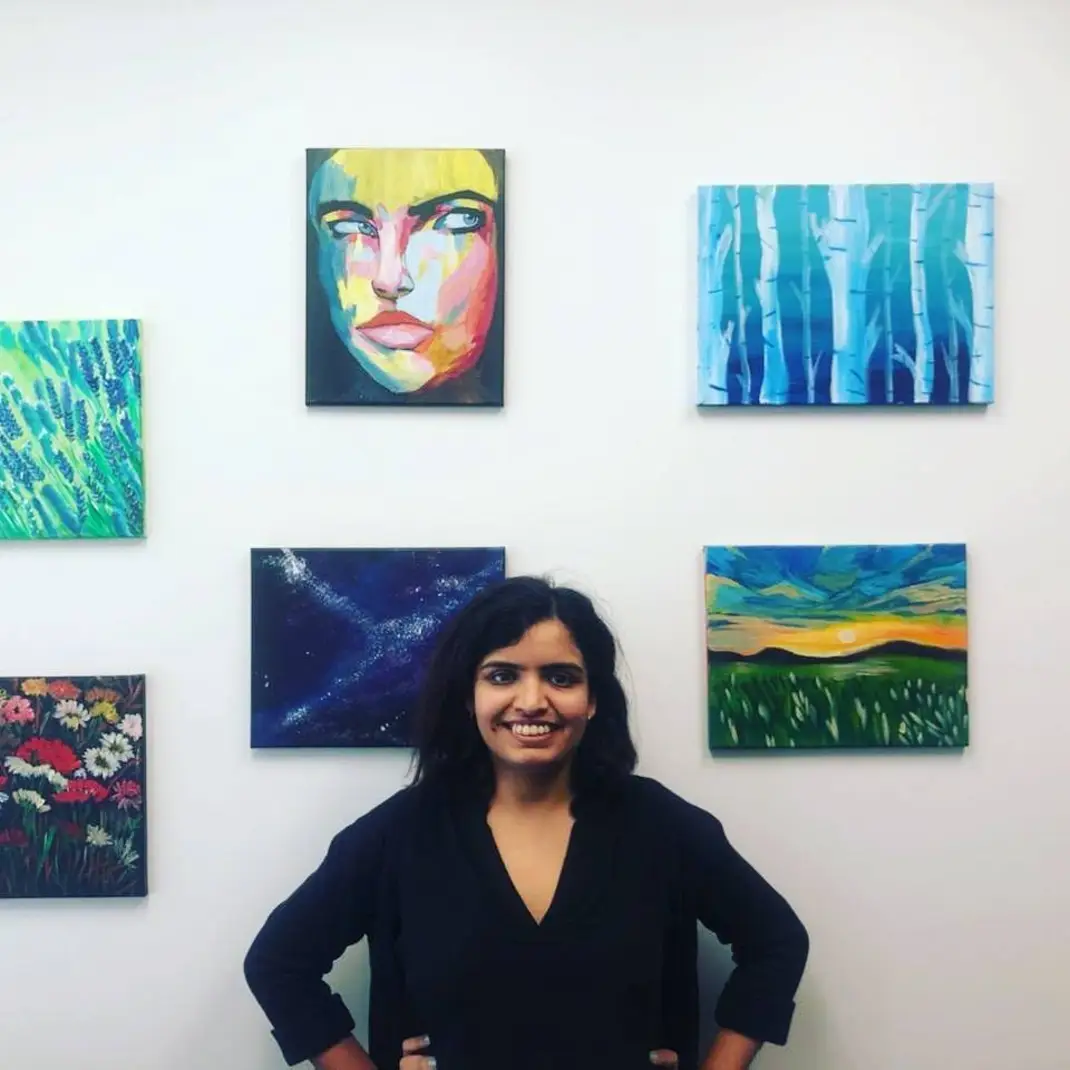
What can society do to ensure an environment that’s helpful to artists and creatives?
As an artist and creator who has been on this journey for a while, I’ve come to realize that one of the biggest challenges for creatives is figuring out how to sustain our work financially while staying true to our vision. Society often celebrates creative output but rarely acknowledges the very real, practical struggles behind the scenes. Financial support, in particular, is something that’s often overlooked or not readily available for independent creators, especially when you’re in the early stages of growth. For me, the moment I started employing people to help elevate my work, I was faced with the reality of just how expensive this process can be. It’s been an eye-opener, and it’s only very recently that I’ve started thinking seriously about offering a service—partly as a way to cover these costs and also as a way to build something more sustainable.
For a thriving creative ecosystem, I believe there needs to be a more open conversation around money and the business side of creativity. There’s often a stigma around asking for financial support, but if we want creatives to thrive, we need to normalize the idea that artists deserve to be paid for their time, skills, and the value they bring. Whether it’s through grants, sponsorships, or simply creating a culture where it’s acceptable for artists to ask for compensation, financial support is crucial. Society needs to see creatives not just as people who “love what they do” but as professionals who deserve to be compensated like anyone else offering expertise.
Another important aspect is honest feedback. As creators, we often put our hearts into our work, but what’s equally important is receiving thoughtful and constructive criticism that helps us improve. I’ve struggled with getting honest feedback—sometimes people either don’t want to hurt your feelings, or they don’t have the right perspective to offer meaningful input. But without that feedback, it’s hard to know how to refine your work, how to engage more effectively with your audience, or how to grow as an artist. It’s not enough to just like something; we need feedback that pushes us to do better.
And finally, one of the areas I’ve struggled with the most is knowing how to grow my work and get people to engage with it. As much as creativity is about passion and talent, there’s also a significant element of learning how to build and scale. How do you turn your art into a viable project that can reach more people? How do you market yourself without compromising the integrity of your work? I’ve faced a lot of frustration around these questions, and there’s still so much I’m learning. What would help creatives like myself is greater access to mentorship and expertise—from how to build a brand, to creating sustainable business models, to navigating the digital world. It’s been a bit of a mess for me figuring out how to do this on my own, and I know so many others face the same challenge.
Supporting a thriving creative ecosystem means acknowledging that artists and creatives need more than applause—they need resources, guidance, and financial investment. It’s not just about celebrating creativity; it’s about building structures that help it grow and survive.
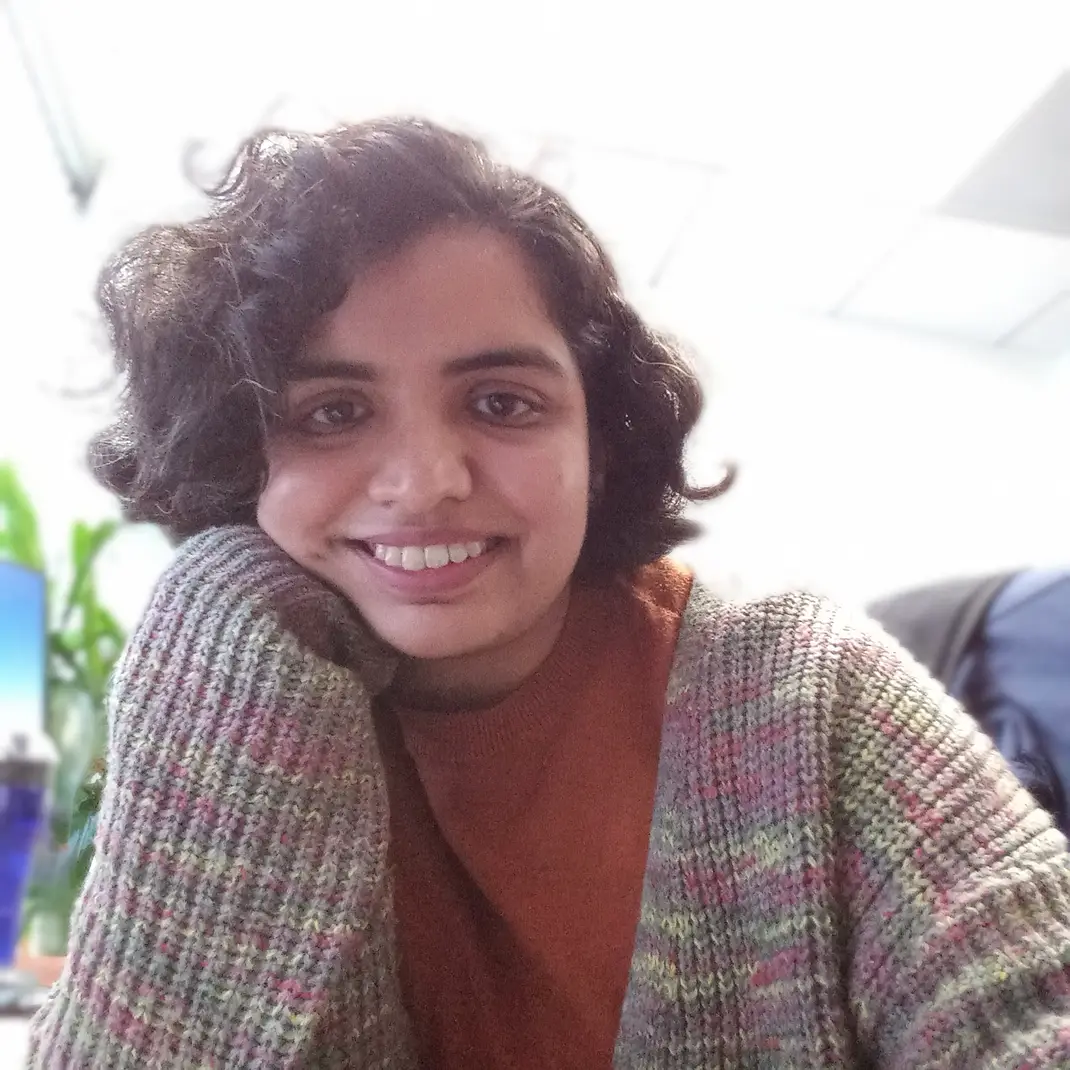
Are there any books, videos or other content that you feel have meaningfully impacted your thinking?
One of the most significant resources that has shaped my approach to creativity, entrepreneurship, and consistency is The War of Art by Steven Pressfield. This book completely transformed how I view my creative work. Before reading it, I thought of creativity as something I did when inspiration struck or in my spare time—almost like a hobby. But The War of Art reframed my thinking in a profound way.
Pressfield talks about how creative work is like building a muscle. You have to show up and put in the work every day, whether you feel like it or not, whether you’re inspired or not. This mindset shift was crucial for me, especially when it came to my work with Rethink Desi. I realized that if I wanted to elevate my craft, I had to treat it like a profession—not just a passion. That meant creating routines, setting deadlines for myself, and consistently producing content, even when the creative process felt challenging.
The idea that resistance is the enemy of creative work really struck a chord with me. Pressfield describes resistance as the force that tries to stop us from doing our work—whether it’s procrastination, fear, or self-doubt. Understanding that this resistance is something all creatives face, and learning how to push through it, has been one of the key reasons I’ve grown more consistent in producing content for Rethink Desi.
The book also shifted my entrepreneurial thinking by teaching me that commitment and discipline are just as important as talent. You can have the best ideas, but if you don’t have the discipline to show up and put in the work every day, those ideas will never materialize. This has been critical in helping me not only grow Rethink Desi but also elevate the quality of my work as I collaborate with my editing team and start thinking about how to offer services to other organizations.
The War of Art has inspired me to think of my creative practice as something to be honed, elevated, and shared with the world—not just something I do when I feel like it. It’s a philosophy that has extended to how I manage my time, my projects, and my overall vision for my creative and entrepreneurial journey.
Contact Info:
- Website: https://rethinkdesi.org
- Instagram: rethinkdesi
- Linkedin: https://www.linkedin.com/in/arpita-sharma-6554001b
- Youtube: https://www.youtube.com/@rethinkdesi
